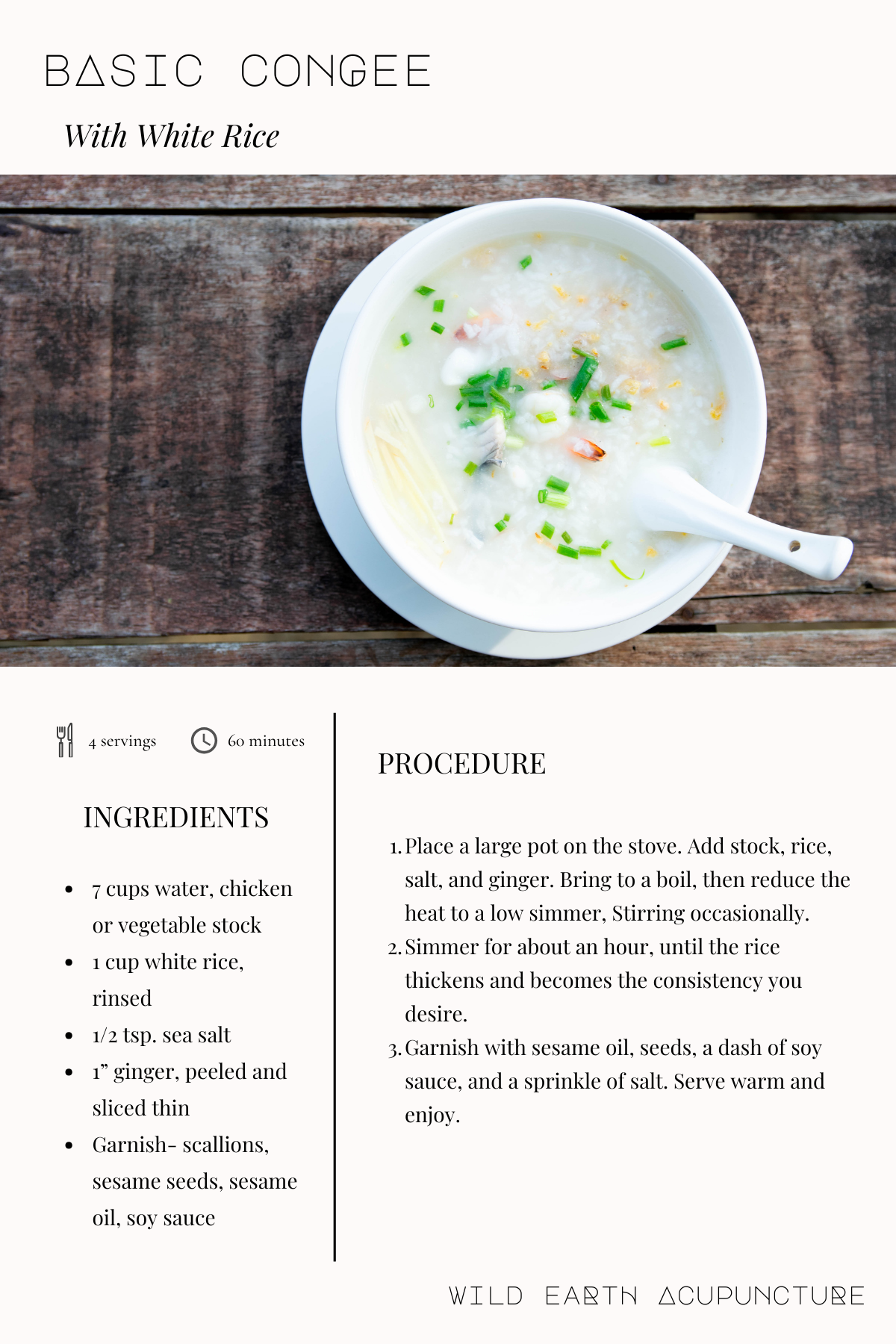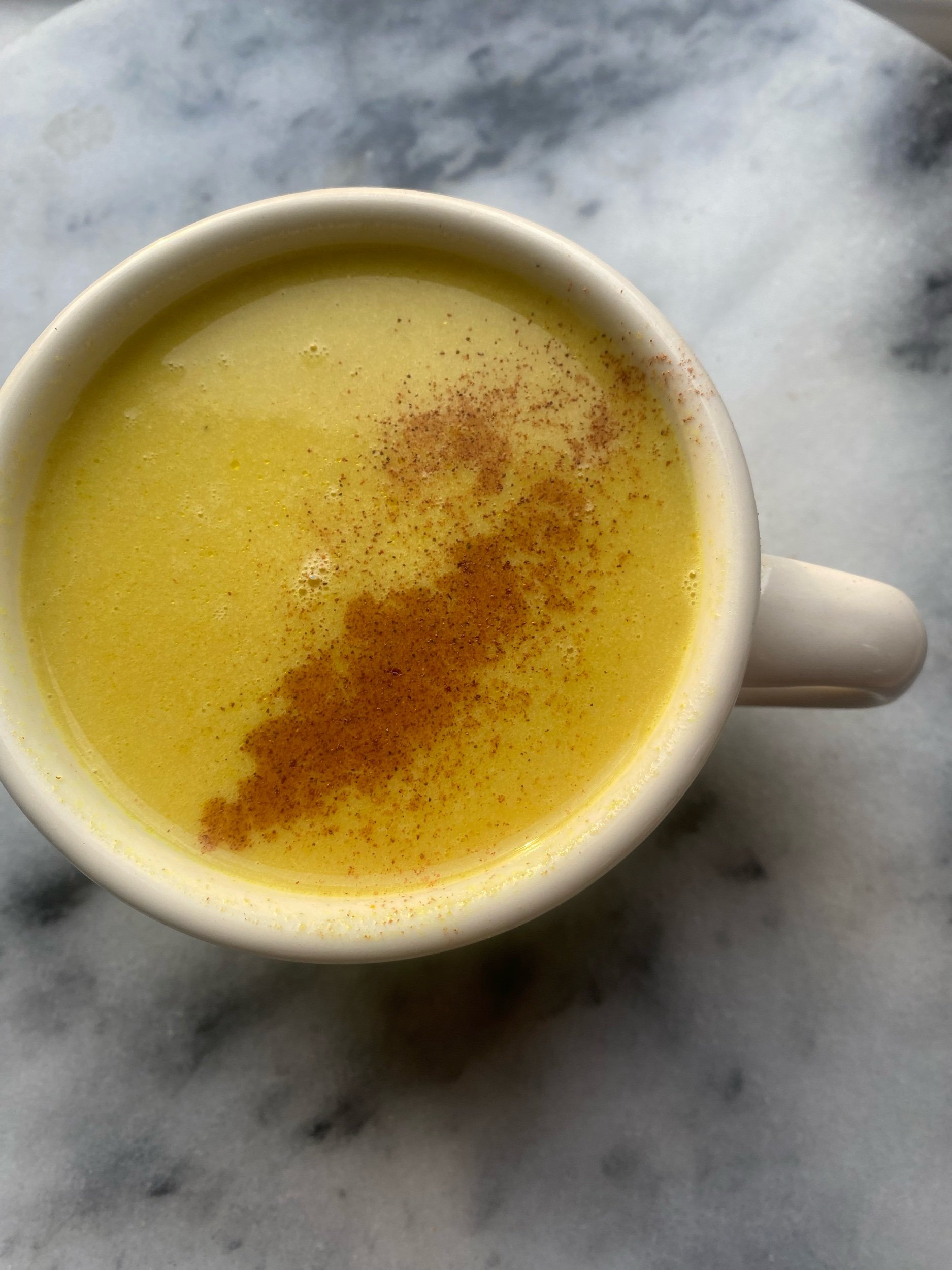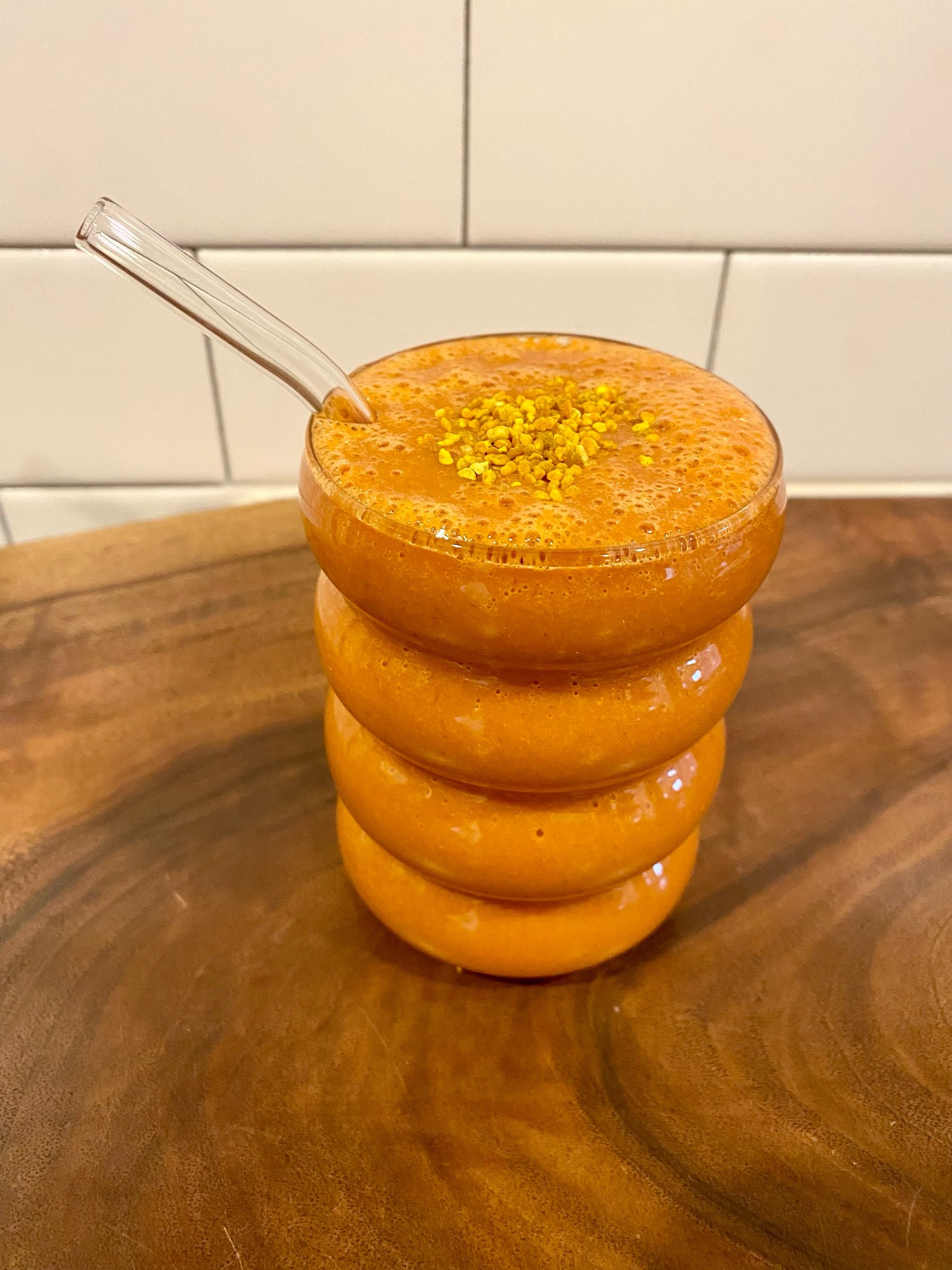Congee
This delicious and nutritious soup is easy to make in a variety of different ways.
Congee, rice porridge, is a comfort food that is deeply nourishing and tasty. Essentially it is rice that is cooked with copious amounts of water, far more than what is usually used to make your usual fluffy rice. The rice is cooked until it begins to break down, and a nice, thick porridge consistency forms. You can alter the thickness of the congee by adding more liquid. There are many varieties of congee, but the base recipe is the same: 1 cup of rice to 7-10 cups of liquid. From there, you can decide if you are feeling savory or sweet and can add things like meats, vegetables, or fruits to your liking! For this dish, you can use water or broth. Either is a fine option; the broth lends a saltier, richer flavor, but the simple water congee lends to a great dish that can easily take on any flavor from toppings and garnishes. I love to make a basic congee with bone broth.
Congee is a neutral food that can help the body reset after illness, give the digestive system a break, or is even a great vehicle to get herbs and other food great medicines into the body. It can be eaten at any time of day, as a meal or a complimentary dish. I love it for breakfast.
Below I have given you two recipes, one for a basic Chinese congee, simple and amazing, a time-tested recipe, and another more done-up version, loaded with immune-boosting herbs. I have also listed a bunch of variations for medicinal purposes at the end of this article. Once you get the hang of this dish, it will be in the weekly rotation with variations galore. You can add an egg, or shrimp on top to make a hearty meal, or slow cook with ginger and cinnamon, and top with sweet mango for a healthy treat.
Basic Chinese Congee
Ingredients
7 cups water, chicken or vegetable stock
1 cup white rice, rinsed
1/2 tsp. sea salt
1” ginger, peeled and sliced thin
Garnish- scallions, sesame seeds, sesame oil, soy sauce
Procedure
Place a large pot on the stove. Add stock, rice, salt, and ginger. Bring to a boil, then reduce the heat to a low simmer, Stirring occasionally.
Simmer for about an hour, until the rice thickens and becomes the consistency you desire.
Garnish with sesame oil, seeds, a dash of soy sauce, and a sprinkle of salt. Serve warm and enjoy.
Herbal Congee Recipe
Ingredients
1 cup Rice
10 cups chicken, beef, bone, or vegetable broth
2 Tbsp. Garlic, minced
2 Tbsp. Ginger, minced
1 Tbsp. Black pepper, fresh ground
1 lb. cooked chicken cut up
Salt to taste
2 small Astragalus roots (this will be discarded after use, not eaten)
4-6 Jujube dates (Da Zao)
1-2 slices of Reishi mushroom (this will be discarded after use, not eaten)
Garnish- Sesame seeds, scallions
Procedure
Place a large pot on the stove. Add in the rice, herbs, and broth. Bring to a boil and then lower heat to a simmer. Simmer for about an hour, stirring occasionally.
Add the chicken and simmer for about 15 minutes longer. Stir frequently, as the consistency should be thick and creamy. You can add more broth if you need to.
Remove astragalus and reishi before serving.
Garnish with scallions and sesame seeds. Serve warm and enjoy.
Common Congee Combinations
This list features common rice-based congee combinations and desired effects, adapted from Chinese Medicinal Herbs*
Aduki Bean: Diuretic, Curative for edema and Gout
Apricot Kernel: Recommended for coughs, asthma, expels sputum, and intestinal gas
Carrot: Digestive Aid, calms flatulence
Celery: Cooling, Benefits the Large Intestine
Chestnut: Tonfifes kidneys, strengthens knees, helps treat anal hemorrhages
Fennel: Harmonizes the stomach, exiles gas, improves hernias
Ginger: Warming and antiseptic, great for deficient cold digestive weakness, diarrhea, vomiting, and indigestion
Leek: Warming, good from chronic diarrhea
Liver from chicken or sheep: benefits diseases of the liver, very powerful healing tonic
Mung Beans: Cooling, reduces fever, relieves thirst
Mustard: Expels phlegm, clears stomach congestion
Poppy Seed: Relieves vomiting, benefits Large intestine
Radish: Improves digestion, benefits the diaphragm
Brown Rice: (A favorite) Diuretic, thirst-quenching, Nourishing, and great for nursing moms
Sesame Seed: Moisturizing to the digestive tract
Taro root: Aids the stomach, builds blood
Yogurt and Honey: Delicious and beneficial to the Heart and Lungs
References
Pitchford, P. (2009). Healing with whole foods: Asian traditions and modern nutrition. Berkeley, CA: North Atlantic Books.
F.Porter Smith and G.A. Stuart. (1973) Chinese Medicinal Herbs, San Francisco: Georgetown Press.













This simple receipe for nourishing chicken can easily become a staple in your household!